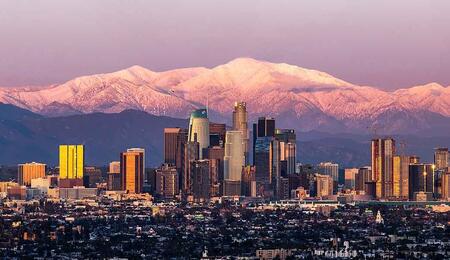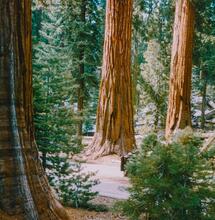California: Black Market Outperforms Legal Retailers

Needless to speak, the cannabis industry had made major wins in the Golden State, especially since 2016, when recreational use became legal. California is where some of the best cultivars are engineered and where online sales are reinventing traditional sales of pot. However, there's more to the story, and the law is more perplexed than it appears. Local officials enjoy the authority to grant permission whether cannabis is legal business on their territory. Add to that the high taxes on legal cannabis products and competitor unlicensed business subjects who still want a piece of the cake. The combination of these factors is holding back the legal cannabis business in California.
Market analyses repeatedly show that most of California's weed sales evade regulations and thrive in a gray area. Vendors blame the state's flawed marijuana laws, which, as various industry experts comment, are lagging behind other states that have legalized the recreational use of marijuana.
It's estimated that California's underground pot market generates close to $8 billion each year. According to the state's tax figures, the worth of the legal, adult-use marijuana market is somewhere around $5 billion. In areas where illegal transactions are virtually killing licensed shops, vendors look for alternatives where to trade their stash. In some cases, they move to an entirely different state so they don't go bankrupt. And it's easier to go bankrupt than you might think!
Most Californian cities, or nearly 70% percent to be more accurate—do not permit retails of weed. While it's easy to find weed in cities such as LA and San Francisco, the policies are not so friendly in vast areas of the Central Valley for instance. Local authorities thoroughly enjoy the right to say if and where people can set up legal cannabis shops. In many cases, those cities and counties that permit licensed businesses introduce various other restrictions. There's a limited number of dispensaries that can function simultaneously, or retails are not allowed on the main streets in the city center. It all adds to a long list of reasons why NOT to run your cannabis shop if you come from certain places in California. It just seems the state doesn't love you enough, or at least it's not your mayor and their cabinet.
It appears the easiest way to get into the cannabis industry in the Golden State is to obtain a cannabis cultivation permit and begin large-scale grow operations. This is precisely what big names in swathes of land like Santa Barbara and Salinas Valley have done. In fact, according to industry experts, some of the cannabis operators centered there have cultivated so much pot that it's almost impossible to sell it all.
State figures reveal that farming cannabis crops is anywhere near three times more than what California's both medical and recreational cannabis communities are capable to buy and consume. In figures, it looks like this: the state's ability to ingest and inhale marijuana is about 2.3 million pounds per year, while the state's capacity for legal cultivation hits whopping 6 million pounds.
There's more! According to a February 2020 market analysis by Marijuana Business Daily, California has just 823 legal cannabis shops but almost 3,000 unlicensed retailers and delivery services that deal weed without permission.
The licensed brick-and-mortar shops are sparsely scattered across the state, further writes Alexander Nieves in his contribution on the topic for Politico. San Diego, a city of 1.4 million people, is served with just 25 brick-and-mortar shops, while San Jose has 16 for a population of 1 million. Per 100,000 Californians, there are roughly 2 legal shops, which is much less than other legal states such as Oregon, Colorado, and Washington. Oregon for instance has approximately 18 retail shops for every 100,000 residents. Oregon also has 4.218 million people, according to 2019 data. California has 39.51 million. It's definitely weird math to do!

The sheer magnitude of California's black market is also seen in the increased numbers of pot busts that have taken place during this year. Southern California authorities seized massive 16 tons of marijuana in a single raid last summer, valued at around $1.19 billion. Grow infrastructures such as water systems that illegally drain water or toxic pesticides that pollute ecosystems have also been snatched in other operations.
Banned pesticides are found in nearly every illicit farming site uncovered by the police. The harmful substances are often dumped in nature and jeopardize protected areas where species such as the Mohave ground squirrel, desert tortoise, and the archetypal Joshua tree thrive.
But as long as weed is cheaper to find on the streets, people will go for it. Regardless if it's killing trees and tortoise. Price, after all, is the main driving factor in the age of consumerism. California has homework to do and that is to fix its cracked regulation. Then hopefully, a brighter future one day arrives. Sooner rather than later!







